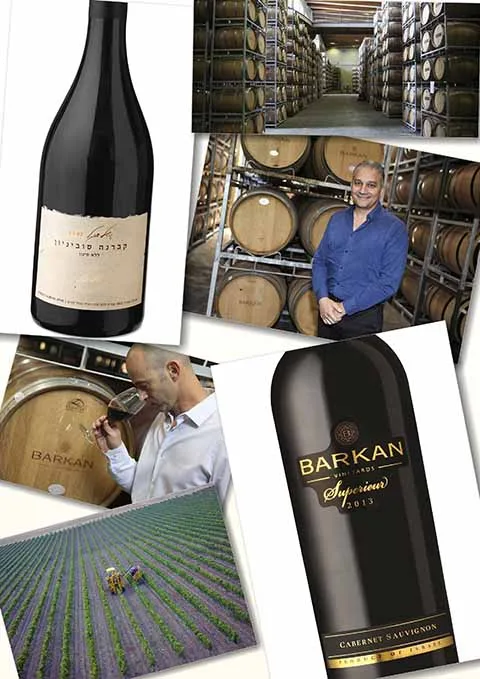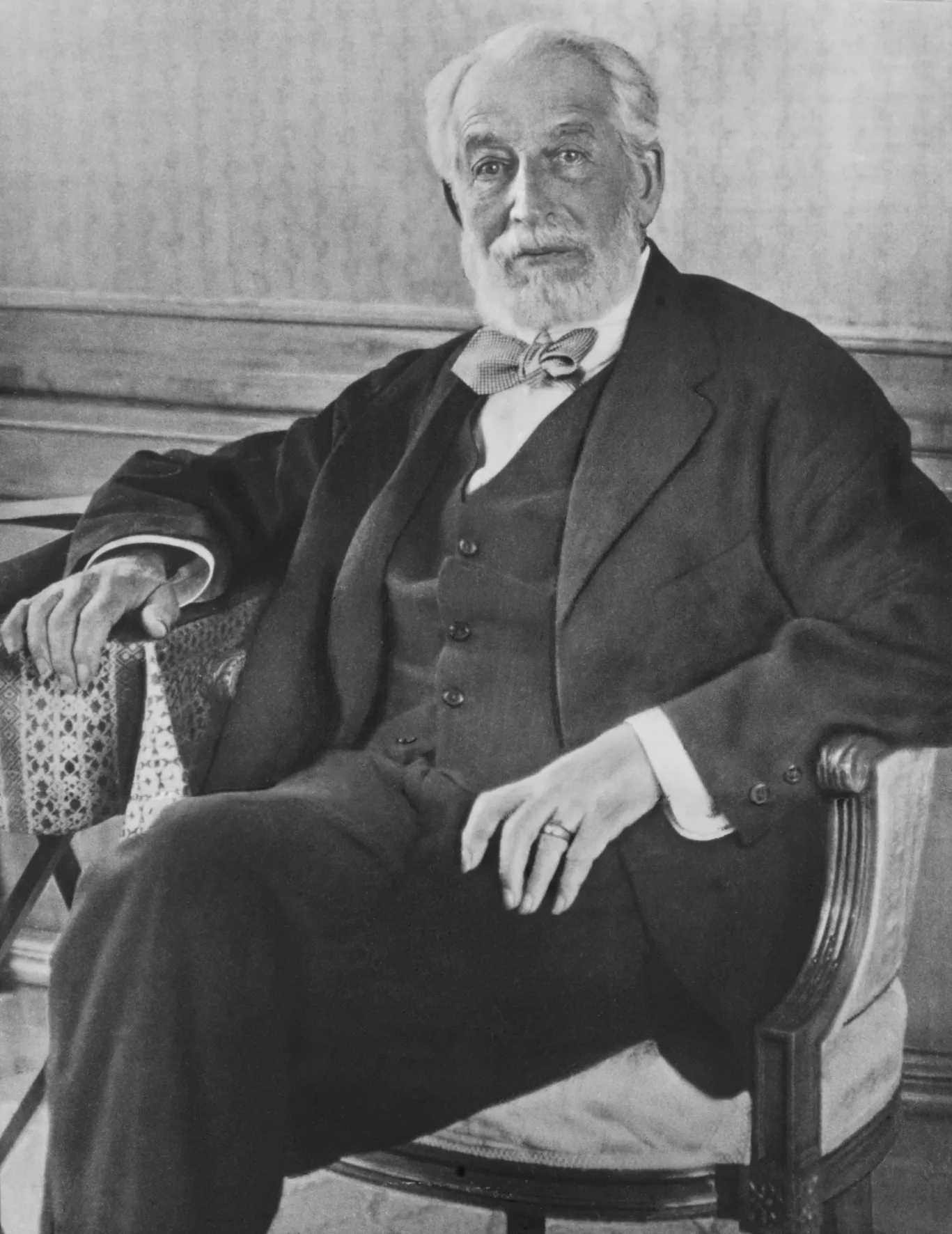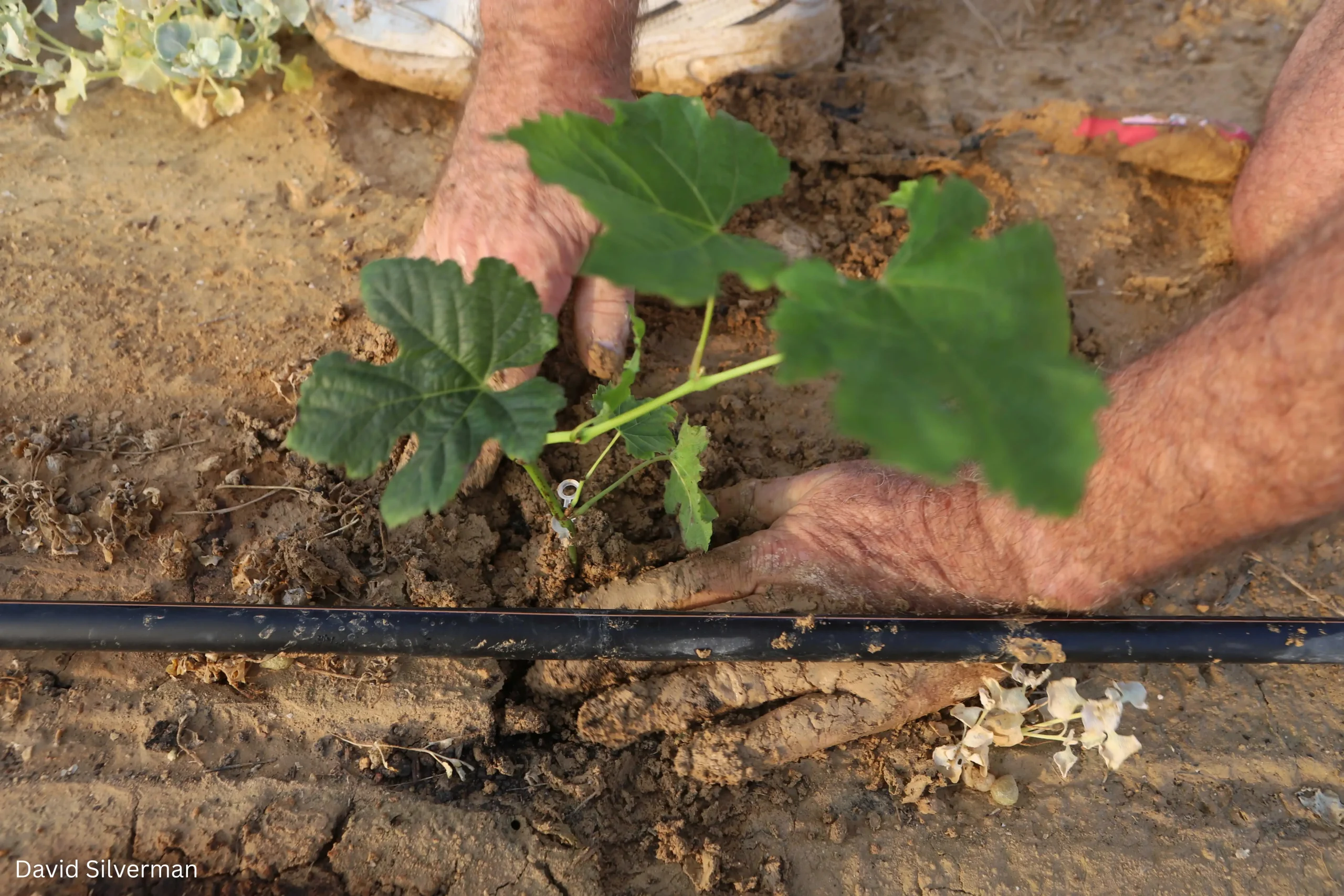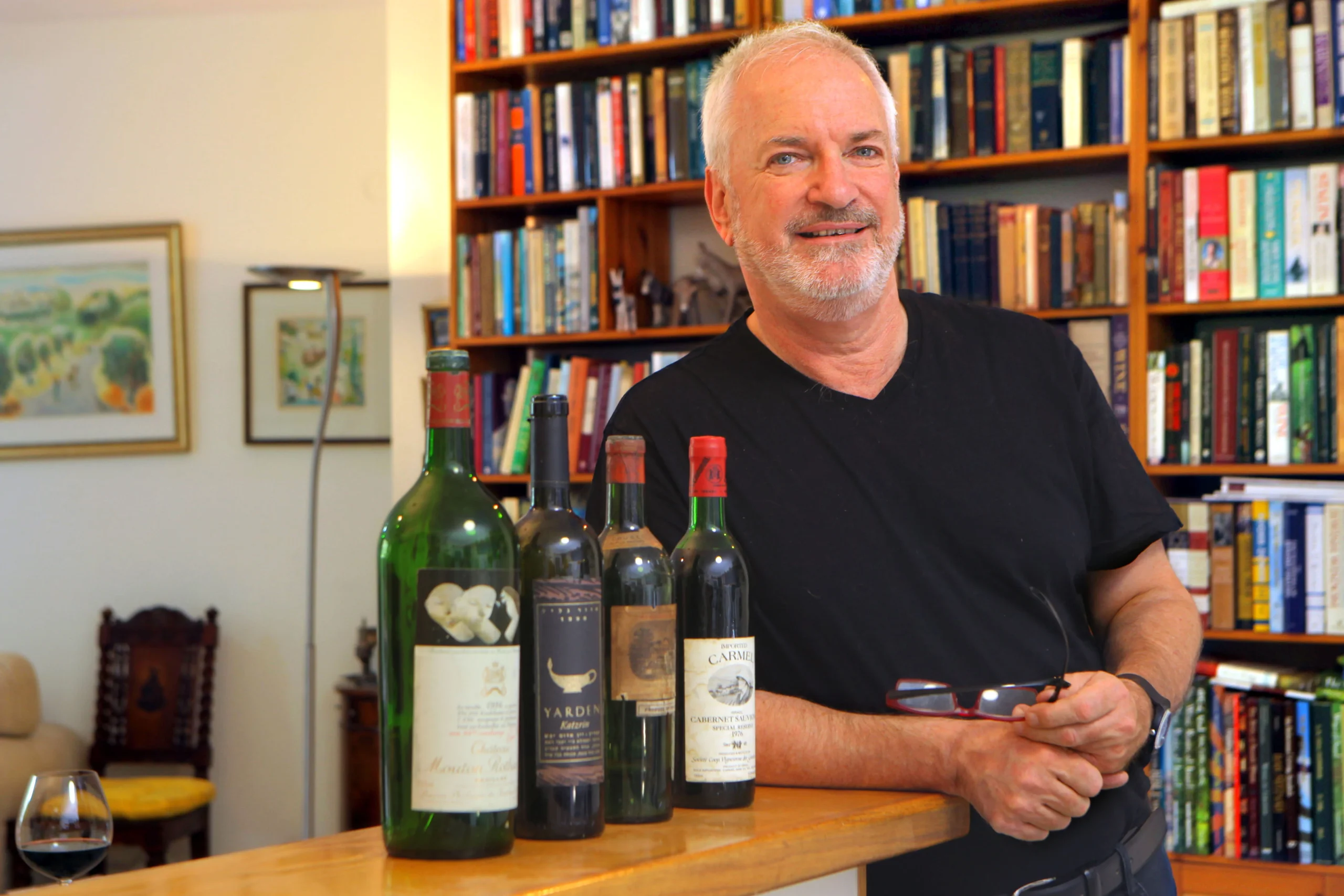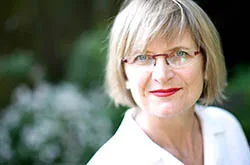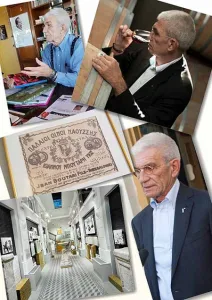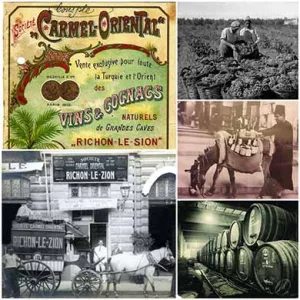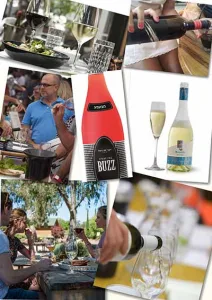At some wineries, managing directors seem to change all the time. At others, they make an impact over decades. At Carmel & Binyamina for example, the managers seem to change with the seasons. At others, like Teperberg and Barkan, the same managers were in control for many years. Moti Teperberg has been CEO of Teperberg Winery for over 30 years and Shmuel Boxer was CEO of Barkan Winery for 26 years. At the turn of the century a number of new wineries sprung up with large investments and great potential. Wineries like Clos de Gat, Flam and Recanati flourished, whilst others like Amphorae and Ella Valley struggled with regular changes of ownership and managers respectively. The reason is the quality of management which is as important to a winery’s success as a viticulturist and winemaker.
Wine writers normally write about wines, wineries and vineyards, and also winemakers and vineyard growers. We rarely cover managers. Yet they are crucial to the health of our industry.
I am experienced in new CEO’s starting in the wine industry. During my career at Carmel & the Golan Heights Winery I worked with no less than 11 CEO’s. This number was swelled by my last years at Carmel where since the new owners took over, they went through three CEO’s in four years. I was used to the new figure coming in with immediate confidence that they had the answers, not listening or wanting to learn the wine trade, failing dismally and then moving on whereby the whole process of induction starts again.
I also worked with some great iconic managers. Segev Yerovam and Shalom Blayer from the Golan Heights Winery and Israel Ivzan from Carmel Winery. So I have a PhD in new CEO’s coming naked into the wine industry. It was therefore with some trepidation and with a little cynicism that I went to meet the CEO of Barkan Winery, Gilles Assouline.
Barkan Winery is now Israel’s largest winery producing 11 million bottles of wine a year and a further 2 million bottles of grape juice (made from wine grapes.) For 125 years Carmel Winery was the largest winery in Israel but no more.
Barkan was founded by Shmuel Boxer and Yair Lerner in 1990. The creative historians at the winery will explain to you the winery roots go back to 1899. Then Friedman Winery was founded by 1899 in Petach Tikvah. This was bought by Tnuva and became Friedman Tnuva until 1971 when purchased by WEST of Netanya, representatives of the international spirits company, Stock. In 1988 they began to build a new facility in the Barkan Industrial Estate, near Ariel but went bankrupt before it opened. This was Boxer’s opportunity.
This rewriting the past is quite common here. Carmel’s logo implies they were founded in 1882 when the first experimental vineyards were planted. This despite the fact that the first winery did not open until 1890 and the name Carmel was not used to 1896! I suppose you should not spoil a good story by the truth, but this historical creativity seems to be an Israeli thing.
Segal had a more solid historical story. The Segal brothers came to Israel as distillers from White Russia in 1925. They were involved in the first distillery set up in the Templer’s community of Sarona. They founded a winery called Askalon Wines and an import company called Carmei Zvi in 1950 and later changed the name to Segal Wines. This was run by the family until 2001 when the family sold out to Barkan.
The Barkan Winery was bought by the Tempo Beverage Company in 2005. Tempo was originally a soft drink company founded in 1953. It entered the beer industry in 1985 and became Israel’s largest brewer. Today, they own Israel’s largest winery too.
Tempo has grown and developed to become the second largest beverage company in Israel with an impressive range of Israeli and global brands skillfully put together by chairman and CEO Jacques Beer. The Tempo group represents or produces brands of the caliber of Goldstar & Heineken; Absolut, Chivas Regal & Jameson; Pepsi Cola, Seven Up & San Pellegrino, as well as Barkan and Segal. Amir Borenstein is the chairman of Barkan Winery Ltd.
Shmuel Boxer, who continued as CEO of the winery, had a dream which he did not hide. He wanted to make Barkan the largest winery and largest exporter. With the cushion provided by Tempo, and his own determination and astuteness, he achieved both. He also left with Barkan firmly settled in its new home at Hulda, alongside the largest vineyard in the country.
At present Barkan wines do not have a great image. In fact the wines are probably better than most people think, but though Tempo have been great at selling wine, particularly in supermarkets, they have been markedly less successful in selling an image of style and quality. This is important in today’s competitive wine market, where size is not always an advantage and perception is everything. The problem is exacerbated by the fact that Barkan and Segal brands overlap somewhat and the proliferation of too many different labels make it all the more confusing.
This is what Gilles Assouline has inherited. He and his Israeli wife made Aliyah from Paris in 2006. They have three children. He worked for L’Oreal from 2007 and 2013 and sees a similarity between wine and cosmetics in the relation between brands with added value and those competing in the general market. He joined Tempo as Plant Manager in 2013 and was appointed CEO of Barkan in August 2016 at the beginning of the harvest.
I thought the worst when the guard did not let me into the building, however when I finally made it to Gilles Assouline’s office, I was pleasantly surprised by his warmth, intelligence and understanding of the market. I think his great strength is that he also knows what he does not know. This is a priceless gift for someone entering the insular and conservative wine world. He accepts the responsibility Barkan has to effect, create and lead change in the market. I suspect there will be changes, but you can’t change a juggernaut overnight.
The first major decision of the new CEO was the appointment of a new head winemaker. Here the choice was inspired and not the safe choice one might have expected. They chose Ido Lewinsohn who had been a very successful winemaker at Recanati Winery and he also makes the wine at his father’s garagiste winery, (literally in a garage) in Hod Hasharon, one of Israel’s finest boutique wineries. Kudos to the CEO and Tempo. There are four winemakers in his team and five agronomists.
Then Assouline appointed an operations and agricultural manager to free the winemaker to concentrate on making wine. He also brought the marketing department, previously an isolated island in Tempo, and the winemaker closer. He spoke with impressive energy. He implied with a glint in his eye that he has always worked where root treatment is required and appeared more than up for the task.
He spoke intelligently about the Barkan and Segal as commodities in the mass market (in supermarkets) and about the different needs of Barkan & Segal wines with added value in the quality, ‘professional’ wine market (wine shops & restaurants). He was also interesting about his hopes for leading Israeli wine in export markets at a price that would make Israeli wine attractive outside the kosher market.
I found him smart and modest, not lacking in confidence, but without the hubris that is the enemy of so many of the CEO’s new to the wine industry. He seems to be learning quickly and is soaking up new information like sponge. He is prepared to take a leadership role, which is crucial for Israeli wine.
Ido Lewinsohn is a passionate winemaker and one of the very best of the young turks. As a winemaker, he has proved himself. He has a great eye for a vineyard and is creative and innovative. Being responsible for a winery of the size of Barkan needs other skills though, including those of management, delegation and organization. This will challenge any young winemaker, but Lewinsohn was a great choice. He is open to learn, flexible and will make his own way. He will certainly review the wines made by Barkan and Segal and in the medium to long term, lead them to new horizons.
It was explained to me that Barkan is the international winery producing wines at every price point. Segal will be more the Israeli wine brand, more “natural and wild”, a playground for the winemaker as he explores an Israeli terroir. The new Segal Petit UF and Free Run are early examples of the new creativity of this label. An encouraging start. I heard words like quality and innovation repeated a number of times. Without doubt the choice of Lewinsohn was a statement of intent by Tempo, that was very welcome to those of us looking on. Let’s hope they give him his head and support.
I left Barkan optimistic and full of anticipation for the changes to come. It will take time, but a new dawn awaits …and it is eagerly awaited by the industry as a whole. We need our leading winery to lead, initiate and inspire. Hopefully there are exciting times ahead at Barkan-Segal.
Segal Free Run Merlot 2016This is a newly released wine from Merlot made from free run juice. It is lively, fresh, fruity with aromas of cherries and plums. It has a great weight being medium bodied. Refreshing. A great drinking wine.PRICE: NIS 59
Segal Petit UF 2014Petit UF is an unfiltered Cabernet Sauvignon, a second wine to the prestige wine Segal Unfiltered. It has aromas of ripe forest fruits underlined by a backdrop of oak flavors. Represents good value.PRICE: NIS 120
Barkan Special Reserve Petit Verdot 2013I also tasted this for the first time. A rare varietal Petit Verdot which I found very drinkable. Dark colored, deep black fruit aromas, with full flavored flavors and well-integrated oak. It had a pleasant finish.PRICE: NIS 69
Adam Montefiore has been advancing Israeli wines for over thirty years. He is known as ‘the ambassador of Israeli wines’ and is the wine writer for the Jerusalem Post. www.adammontefiore.com


